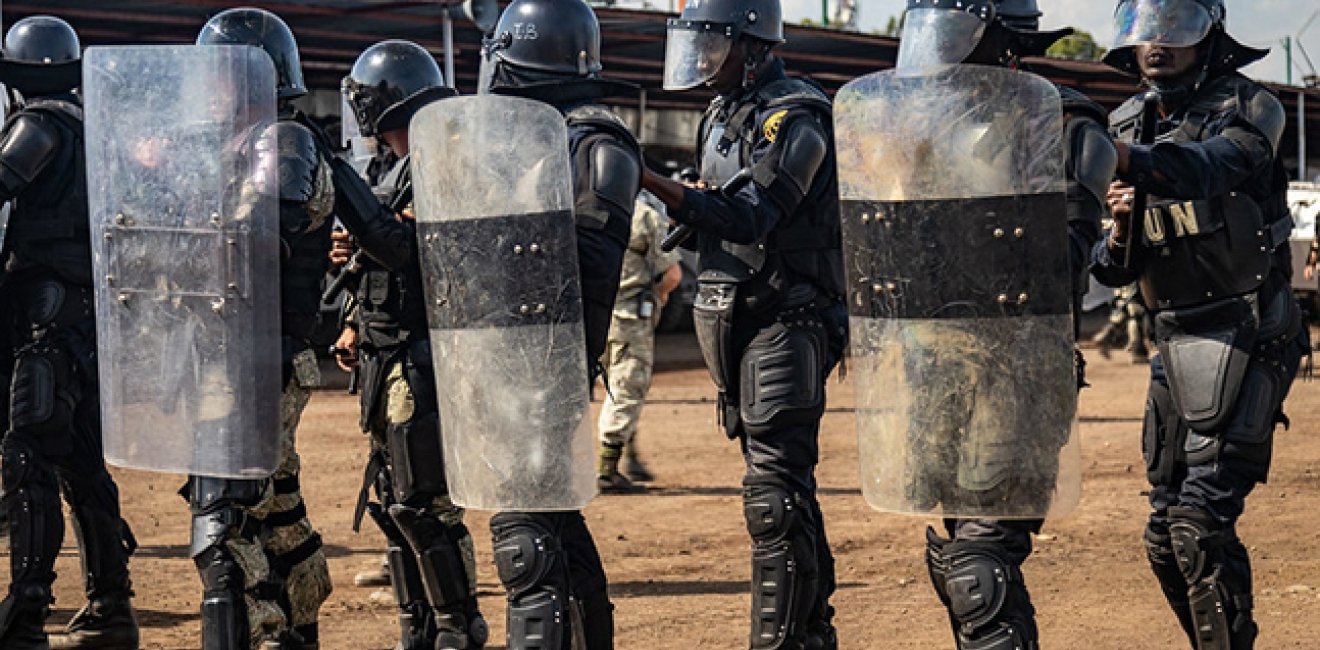
A blog of the Africa Program
The United Nations Security Council (UNSC) October 2020 session will debate the future of its peace mission (MONUSCO) in the Democratic Republic of the Congo (DRC). According to UNSC Resolution (UNSCR) 2502 adopted last December, MONUSCO's mandate will end on December 20, 2020. This completion date conflicts with the recommendation made last year by an independent assessment of MONUSCO ordered by the UNSC. The report advised a period of three years for the Mission's drawdown and exit, to be completed at the end of 2022.
UNSCR 2052 enumerated a list of tasks to be fulfilled by MONUSCO during 2020 to prepare for a successful, gradual transition and responsible exit by the December 2020 target date. Among these tasks was the protection of civilians under threat of physical violence, with a specific focus on the eastern DRC. MONUSCO had been asked to conduct patrols (on foot and by vehicle) in high risk areas to identify threats to civilians and implement joint prevention and response plans by the UN and the DRC military (FARDC). MONUSCO was called upon to enhance its community engagement with civilians and to support FARDC by carrying out targeted offensive operations to neutralize armed groups. MONUSCO was also tasked to work with DRC authorities in support of the DRC judicial system's investigation and prosecution of those allegedly responsible of crimes in the DRC. In addition, UNSCR 2502 pledged that the UN would provide good offices, advice, and support to the DRC government in promoting human rights and advancing democracy.
Unfortunately, at the same time the UNSC was deliberating on MONUSCO's mandate in late 2019, the situation in the volatile eastern DRC was spinning out of control:
"December 2019 was the deadliest month for civilian deaths ever recorded by the Kivu Security Tracker since its creation in June 2017. Armed groups and security forces killed at least 197 civilians over the course of the last 31 days of 2019. This unprecedented death toll was logged at a time when November 2019 also saw record numbers of civilian deaths."
In the months since then, rebel groups have increased their violent activities, slaughtering thousands of helpless civilians in villages in areas where UN troops were stationed. As the UNSC's October meeting approaches, violence in the eastern DRC continues to rage. Also of concern is a tendency by MONUSCO leadership to underestimate the situation. Despite ongoing killing and daily fighting between UN troops and various rebel groups, MONUSCO head Leila Zerrougui continues to express optimism, perhaps misplaced, about the road ahead;
"There have been enough improvements and work done toward stabilization of the DRC that she believes conditions could exist for the phased withdrawal of MONUSCO, despite lingering challenges."
Zerrougui's confidence stands in stark contrast to a recent assessment by UN headquarters in New York:
"The focus on the national COVID-19 response has made it more difficult to engage in a sustained dialogue on the transition. While progress on the development of the joint strategy has therefore been slower than anticipated, preparatory work has continued in order to ensure that detailed discussions with government counterparts can resume apace, once circumstances allow." (S/2020/554).
On the eve of the UNSC's October meeting, many observers in the DRC, including ambassadors in Kinshasa, have expressed the need for caution so that the gains of 20 years of UN investment in DRC peace are not lost in a rush for the MONUSCO mission to leave.
Prior to committing to departure, MONUSCO must first secure several key elements needed for a successful transition:
- Mediation and political dialogue: The political situation in the DRC is unstable. One of MONUSCO's main tasks, stipulated in 2019, is to render assistance for the 2023 elections, to include reform of the Independent National Electoral Commission. Given the potential for the 2023 elections to be a catalyst for renewed conflict (as was the 2018 election), a premature exit of MONUSCO could be costly.
- Security sector reform: A key prerequisite for stability in the DRC is security sector reform. The UN must ensure this process is on track before MONUSCO leaves.
- Diplomacy: Decades of crises in the DRC have been fueled by bad relations between leaders in the Great Lakes region of Central Africa. The UN has appointed a Special Envoy for the Great Lakes to help political peace processes in the region and support good-neighbor diplomacy. MONUSCO must encourage and contribute to this strategic consultation prior to declaring its mission accomplished.
Rigobert Minani Bihuzo, S.J., is Head of the Research and Socio-Political Department at the Centre d'Etudes pour l'Action Sociale (CEPAS), a member organization of the Southern Voices Network for Peacebuilding. He is a former Africa Program and Southern Voices Network for Peacebuilding scholar during spring 2020.
Photo source: MONUSCO Formed Police Unit. Credit: MONUSCO/Kevin Jordan. Source: https://www.flickr.com/photos/monusco/49972743758/. License: https://creativecommons.org/licenses/by-sa/2.0/.
Author

Africa Program
The Africa Program works to address the most critical issues facing Africa and US-Africa relations, build mutually beneficial US-Africa relations, and enhance knowledge and understanding about Africa in the United States. The Program achieves its mission through in-depth research and analyses, public discussion, working groups, and briefings that bring together policymakers, practitioners, and subject matter experts to analyze and offer practical options for tackling key challenges in Africa and in US-Africa relations. Read more

Explore More in Africa Up Close
Browse Africa Up Close
The Innovative Landscape of African Sovereign Wealth Funds



